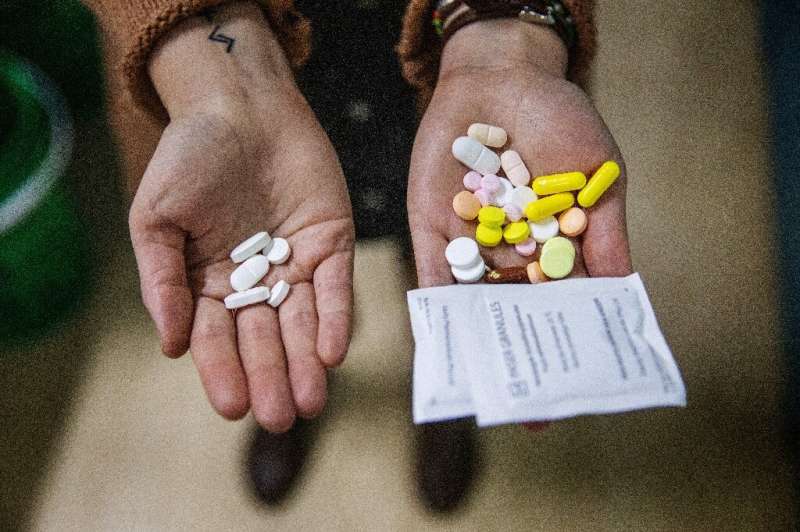Edible sensor helps TB patients take their meds: study

An ingestible sensor that allows doctors to remotely monitor tuberculosis patients' intake of medication has the potential to save millions of lives and revolutionise treatment for the world's most deadly infectious disease, researchers said Friday.
A randomised trial of 77 patients in California, published in the journal PLOS Medicine, found that 93 percent of patients using the sensor were taking their daily treatment doses, compared with 63 percent who did not.
Around 10 million people contract tuberculosis annually, and in 2017 1.6 million people died from the chronic lung disorder.
Poor adherence to treatment regimes has long been associated with continued transmission and the emergence of drug-resistant strains of the disease.
The so-called Wirelessly Observed Therapy (WOT) involves a patient swallowing a small, pill-sized sensor and wearing a paired patch on their torso which transmits medication levels via Bluetooth.
Their physician can then track in real-time their medication intake using a phone app.
"If we are serious about eliminating TB then we have to get some fundamental things right such as increased support for patient care that efficiently helps patients complete all of their treatment," said Sara Browne, Professor of Clinical Medicine at the University of California San Diego, who led the trial.
The vast majority of TB deaths occur in developing nations, led by India.
Mark Cotton, professor of pediatrics and child health at Stellenbosch University, said the technology could have a profound effect on tuberculosis rates and deaths in high-risk countries.
"We must urgently evaluate the applicability of WOT in high-prevalence countries such as India and South Africa where adherence rates are often poor due to geographical barriers, stigma and poverty," Cotton said.
"WOT could potentially be a lifesaver for millions."
More information: Sara H. Browne et al, Wirelessly observed therapy compared to directly observed therapy to confirm and support tuberculosis treatment adherence: A randomized controlled trial, PLOS Medicine (2019). DOI: 10.1371/journal.pmed.1002891
© 2019 AFP



















